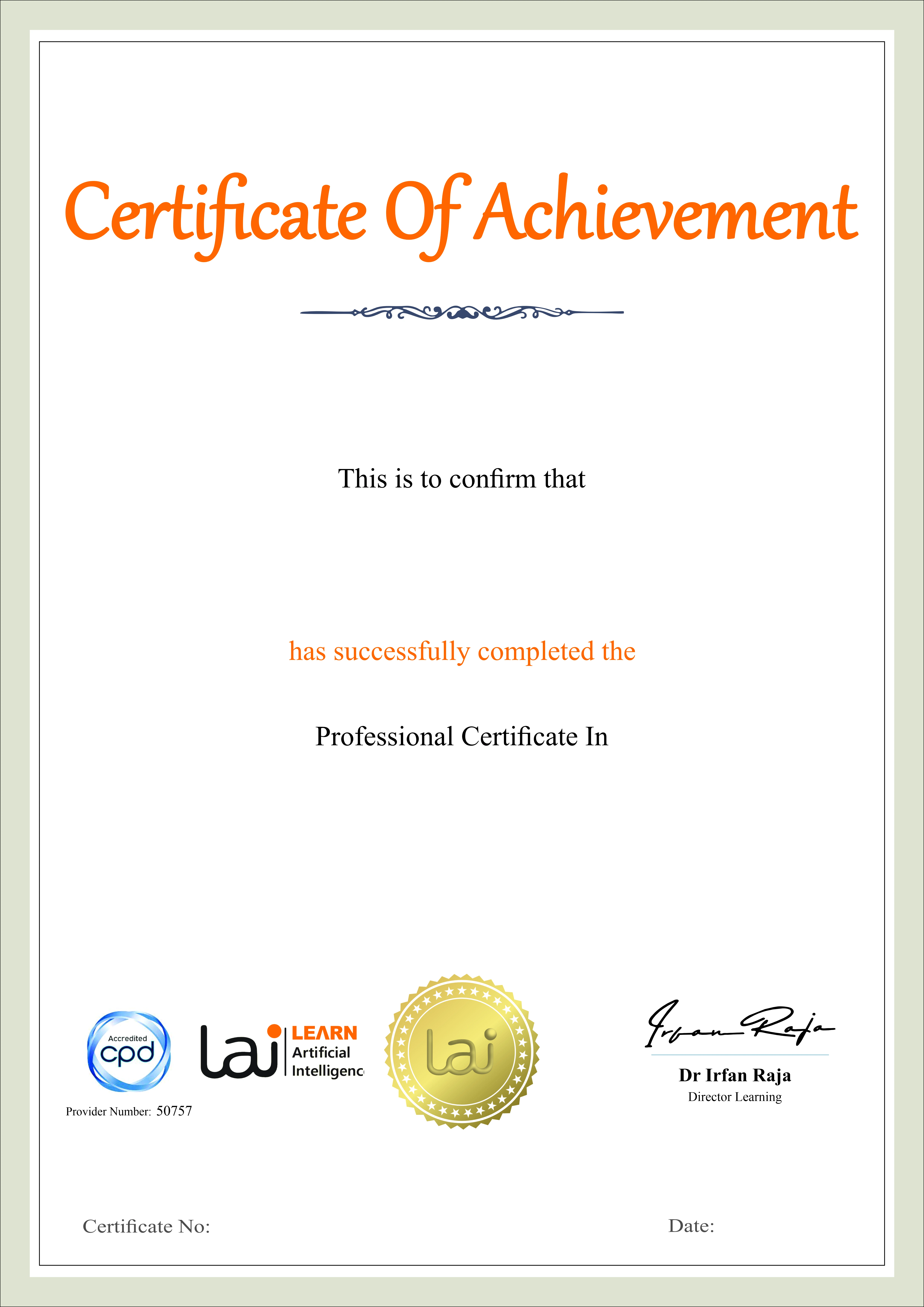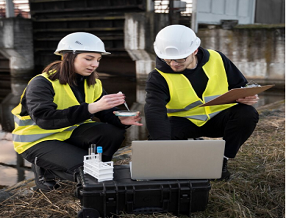The Quality Control of Construction with AI course introduces advanced AI-driven techniques for improving quality control in the building construction industry.
Quality Control of Construction with AI
The Quality Control of Construction with AI course introduces advanced AI-driven techniques for improving quality control in the building construction industry. AI is revolutionizing the way construction projects are managed and monitored, helping ensure that all aspects of construction meet the highest standards. From real-time inspections to defect detection and predictive quality control, this course covers all the essential tools and technologies used in modern quality control systems. By the end of the course, you will gain practical knowledge on integrating AI into construction processes, enhancing efficiency, and minimizing risks.
This course is designed for professionals and enthusiasts who are keen to explore the integration of AI in quality control for building construction. It combines theory and hands-on practice, equipping learners with the knowledge to apply AI tools effectively in real-world construction projects.
This course is ideal for construction managers, engineers, quality assurance specialists, and anyone involved in construction project management who is looking to improve the quality control process through artificial intelligence. It is also suitable for professionals in construction technology, data science, or those interested in exploring AI's impact on the construction industry. Whether you are just starting out in the construction sector or you’re looking to enhance your knowledge of AI applications in construction, this course provides a practical and accessible learning experience for all levels.
Understand the role of AI in construction quality control and inspection.
Utilize machine learning algorithms for predictive quality control and defect detection.
Implement computer vision technologies for real-time inspection and quality monitoring.
Explore the use of robotics and automation to improve quality inspection processes.
Analyse and interpret data using AI-driven quality control analytics.
Integrate IoT devices and sensors for continuous quality monitoring in construction projects.
Gain hands-on experience with AI-powered quality assurance software tools.
Identify the future trends and challenges in AI-powered construction quality control.
-
This module covers the fundamental principles of AI in construction quality control, introducing the key technologies and how AI integrates with quality inspection processes.
-
Explore machine learning techniques used to improve quality control, including supervised and unsupervised learning algorithms for defect detection and quality prediction.
-
Learn how computer vision is applied in construction for defect detection and real-time visual inspections. Understand how AI-powered tools can analyse images to identify quality issues.
-
This module focuses on how robotics and automation systems are transforming construction inspections, from autonomous drones to robotic arms used for quality checks.
-
Learn how to leverage big data and predictive analytics to monitor construction quality and forecast potential issues before they arise, enabling proactive decision-making.
-
Discover how IoT devices and sensors are used to collect real-time data on construction sites, ensuring continuous monitoring of construction quality and safety.
-
Explore the various AI-driven software solutions available for quality assurance in construction, including tools that automate the quality control workflow.
-
Gain insights into the future of AI in construction quality control, including emerging technologies and the challenges faced by the industry in adopting AI solutions.
Earn a Professional Certificate
Earn a certificate of completion issued by Learn Artificial Intelligence (LAI), accredited by the CPD Standards Office and recognised for supporting personal and professional development.

Key Aspects of Course

CPD Accredited
Earn CPD points to enhance your profile

Free Course
This course is free to study

Self-Paced
No time limits or deadlines

Flexible & 24/7
Access Learn anytime, anywhere

Build In-Demand Skills
Get job ready

Updated AI Skills
Stay current with AI advancement

Global Learning
Accessible Worldwide

Premium Materials
High-quality resources

Employer Approved
Boost your career prospects



